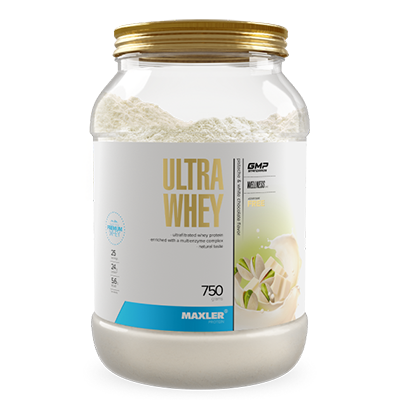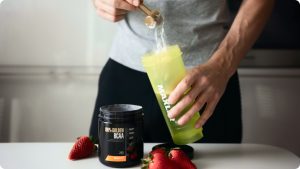Wouldn’t it be great to have a special little something that could really make a difference to your performance no matter where you are in your athletic journey? Looking for such support, many athletes turn to supplements. What are supplements, how can they support performance, and can they benefit your routine? We’ll touch on all these questions in this post, so read on.
What makes a supplement? Typically, a supplement will be something that you take to improve your performance, however, many people take them for health reasons as well. Statistically, athletes that compete at high levels are more likely to use them than those that simply lead an active lifestyle.
Why should an athlete consider supplementing? There may be a few reasons why supplements can benefit athletes, depending on the type of supplement. Certain ones can help an athlete take care of their nutritional needs, if for example, their current nutritional strategies require they lower their intake of fats or particular foods that typically provide key nutrients. Otherwise, vegan and vegetarian athletes may require certain nutrients that they might not always be able to get from foods.
If you’re curious about what vegan athletes should watch out for, read our post on basics of vegan athlete nutrition.
Some athletes might need to increase their intake of certain macronutrients, for example protein, and using whole foods might just be too much. In these cases, using supplements like protein powders, can assist them in meeting their nutritional aims without having to chew on chicken breast with every meal.
Alternatively, there are certain supplements that can enhance performance. For high level athletes, every advantage can potentially make a difference in their results, so many will choose to help themselves with supplements. It’s always important to find those that work for you and are supported by science, however.
Remember that for best results, it’s a good idea to consult with your practitioner before starting your supplement regimen. They’ll be able to support your in choosing the right products and can screen you for nutritional deficiencies, so that you feel empowered to make the choices that are right for you.
Top Supplements for Athletes
Ultimately, an athlete’s ideal list of supplements is heavily dependent on their program. The type of sport you play, your gender, your energy requirements will all affect how you train and therefore, what supplements might work best for your purposes. Luckily however, there are a few classic supplements that can suit almost all athletes. To help you make sense of them, we’ve divided them into a few categories, including supplements for muscle growth and recovery, vitamins and minerals, electrolytes, and collagen.
To help you learn more about what supplements might suit your sport, check out our sport-specific nutritional plans in our Knowledge Center, which have a handy list of supplements for many sports.
Muscle recovery and building:
Growing muscles is a hard job, which is why many people seek supplement help for this goal. Remember that to support the process you’ll need to not only be taking supplements, but also nourishing yourself and training hard. So, what can give you the edge if you’re trying to build your muscle?
Creatine. This is a muscle-building classic. One of the most studied and best-tested supplements, creatine is a must-have for those wanting quicker muscle gain. It works by helping you replenish your cellular energy when training at high intensities. Additionally, it helps you get water into the muscle, which can act as a stimulating signal for growth.
Protein. No matter what sport you play or what your muscle growth aims are, as an athlete, you’re likely to benefit from protein. This supplement nourishes your muscles, providing them with the building blocks necessary for repair and growth. Additionally, it supports your satiety, which is great if you’re restricting calorie intake. A top tip to support your recovery is to mix your protein with a little bit of carbohydrate and have it after a workout – this supports both repair and muscle glycogen restoration.
When choosing a protein supplement, follow some key guidelines:
- Ensure you know what the source material is. High-quality ingredients mean high-quality protein, so it’s best to do your homework
- See if you need a longer-lasting amino acid feeding. Casein proteins can supply aminos for longer, so they’re best to take at night or if you won’t be having any protein for a while.
- Does the protein have many types of protein? Supplements can often contain more than one source of protein. Choose those that suit you and your requirements. For example, for those wanting a quick boost as well as a longer supply of aminos, Maxler Golden 7 contains different types of protein for optimal nutrition.
- Is your protein complete? Having all the essential aminos is necessary for good muscle growth, so do your body a favor and check your protein has them all. For vegan protein powders, this is especially important as certain plant sources don’t have every amino acid you need.
BCAA. Another cult classic, BCAA can be thought of as a more tailored version of protein. These contain three amino acids which work directly in your muscle. One of them, leucine, supports signals that promote growth of muscle tissue. Additionally, they’re a great way to minimize soreness after working out, as they support recovery. They’ll also keep you going during long workouts, slaying your tiredness.
If you’re looking to give BCAAs a try, consider getting a supplement that pairs them with glutamine for extra recovery support, like Maxler BCAA+Glutamine.
MCT. This type of supplement is a little different from what you might have thought of when looking at muscle building supplements. MCT stands for medium chain triglycerides – there are a specific type of fat, like the one found in coconut oil. How can they support your muscle building?
An important aspect of building muscle is stimulating it with the right load. If you’re low on energy or you can’t quite get the number of reps that will stimulate signals to grow muscle, you might not be as efficient or effective as you can be. These fats help you exercise for longer, improving endurance and supporting your efforts.
Potassium. What does a mineral have to do with growing muscle? Potassium is necessary for many processes in the healthy body, including supporting muscle and nerve function, and benefitting bone strength. However, it turns out that it is necessary to make a signal that may promote muscle growth.
Vitamins and minerals
We all know that our bodies would be unable to work the best they can without sufficient micronutrients. Many athletes may be at risk of not getting enough particular vitamins or minerals, especially due to their diet or gender. It’s therefore important to constantly monitor your health and nutritional status, to ensure you’re getting everything your body requires to function properly.
If you’re trying to choose a vitamin or mineral supplement, there are a few things you should pay attention to, such as:
- Is the form of the vitamin the most bioavailable form? Our bodies tend to prefer particular forms of active compounds, so it’s best to get them when you can
- Should I take this micronutrient alongside other things? Certain vitamins are best absorbed in the presence of fat, so you should ensure you’re getting that alongside the supplement. Other micronutrients might be better absorbed together with each other, such as iron and vitamin C, or calcium and vitamin D.
- Does this supplement meet quality standards? Ensure you’re sure about the supplements you’re taking and using.
- Have I checked I need it? Checking in with your practitioner can be helpful when deciding whether you require a supplement or not.
Vitamin D. This sunny vitamin is one that a lot of people may be low on without realizing. Its functions include supporting bone strength, however it’s also essential for muscle growth and your immunity. It’s especially important for athletes to get enough during the winter months or if they predominantly train inside.
Vitamin B. When talking about this vitamin, we need to understand that it is actually a group of multiple vitamins. We need to constantly replenish our levels of them, as they’re not actually stored in the body. They are required to support energy production processes in our cells and also help to support our immunity. This group is of special importance to vegan athletes, as they tend to consume less of vitamin B12.
Additionally, these vitamins can help you support your mental health – find out how in our post!
Magnesium. This common mineral might be more important for athletes than you realise. It plays a role in a tonne of cellular processes, which include protein synthesis and energy release. In addition, you need this mineral for proper nerve function and for muscle contractions. For those that experience muscle cramps, magnesium may be able to support your efforts in seeking relief.
So, how can this mineral support your performance? It can lower the amount of lactate your muscles get, which lowers fatigue. Additionally, sufficient magnesium can be positively associated to muscle strength.
You can support your intake of this mineral with the following foods:
CoQ10. What on earth is CoQ10? Its full name is coenzyme Q10, and it is a special compound that is used in our cell’s energy factories to create the cellular form of energy. It also protects our DNA and our cellular fats from attacks by reactive oxygen species, and it helps remake vitamin C and E in the body.
Does it do anything for athletes though? Yes, it does. One of its best functions is that it works like an antioxidant, and it helps us take care of the oxygen species we generate while training. Additionally, it can help us lower muscle damage after your training sessions. There is also a possibility that it improves performance and can support glucose usage and the adaptation to exercise.
Omega-3 Fish Oil. These fatty acids are a legend in the world of nutrition, and for good reason – they’ve got many benefits but most of us just aren’t getting enough of them. These fats may be able to support recovery and endurance in athletes. They may be able to lower soreness and support muscle growth. Additionally, they may help keep you healthy and lower the risk of certain injuries or health issues that can affect your performance.
If you’re not a massive fan of seafood or you’re a vegetarian athlete, it’s best to look for supplements to help you get your daily dose of these beneficial fats.
Calcium. Do athletes need to have strong bones? Yes, absolutely! Combining sufficient levels of calcium and some strength training can support your skeleton and help keep it strong.
This micronutrient may be especially useful to keep track of for female athletes, as they may often not get enough. Those that train for endurance also need to support their nutrition with sufficient levels of calcium.
Phosphate. You’ll find that phosphate in supplements usually means phosphorus. This micronutrient is key in our energy-generating processes, as the chemical energy our cells use relies on phosphorus. It can help the body take in glucose after a meal, which is needed to build glycogen. While certain people can benefit from it, there is still a need to learn more about the role it has on exercise performance.
Carnitine. The name of this supplement may be unfamiliar to you, just as its function, however, it does have its fans. Carnitine is a combination of two amino acids that do a specific function – they help provide our cellular energy factories with fatty acids for fuel. It boasts a list of impressive benefits, that include:
- Improving your strength
- Supporting those that do long and tiring trainings that challenge endurance
- Lower your tiredness levels
This supplement can be useful for those trying to recover from training as well, as it can lower muscle damage. Additionally, it can support your immunity after hard training.
They may also be useful for helping you stay in shape – check out our post on fat burners that can help you make the body of your goals.
Vitamin C. The first thing you think about when someone says citrus fruits is probably this vitamin. It is necessary for strong natural defences, which is why it’s so important for athletes. But it also has a range of performance supporting functions, such as:
- Aiding collagen production, which is necessary for preventing injury and supporting bone health
- It is needed for energy generation as it helps make carnitine
- Plus it can support muscle oxygenation
Vitamin E. This vitamin is an antioxidant, so it’s received a lot of attention from many athletes. During gruelling training sessions, our cells produce substances that are called reactive oxygen species. These can lower performance, making the muscle feel more tired. Antioxidants are a type of compound that can protect the cells from the effects of these reactive oxygen species, and many athletes supplement antioxidants to help their tiredness and performance.
It can support your body in adapting to exercise and recovering from it, however, it may be better to get the vitamin from food sources, like almonds. There are certain exceptions of course, for those who eat little fats, supplementing this vitamin is preferred, as they may not be getting enough from foods.
You’re better off choosing natural form of vitamin E in a supplement, like in Maxler Natural Vitamin E, as that is the form best used by the body.
Multivitamins
A common way to support overall health, especially if your nutrition is constricted for the purposes of achieving a certain weight, are multivitamins. These supplements typically contain all the minerals and the vitamins that your body will need in sufficient doses. Some may have additional beneficial compounds in them, such as our scientifically-designed Vitamen and Vitawomen multivitamins. They contain additional herbal ingredients to support energy and overall athletic health.
You can read more about how they support athletic health and performance in this post.
Should you choose to make a multivitamin a part of your routine, remember that they’re a helpful addition. However, they’re not a replacement for a healthy diet, so make sure your overall nutrition is still balanced.
Electrolytes
Another crucial aspect of performance is ensuring an adequate water balance in the body. That means proper hydration. Many athletes tend to start off their events without adequately hydrating, which can affect performance, lower strength, make injury more likely and can put more stress on your body.
Hydration is very much a personal approach, as it’s dependent on how much you sweat, the conditions you’re performing in and even what you’re wearing. Making sure you start drinking a few hours before your training or event is crucial, and sipping on water constantly throughout exercise. The top tip for figuring out how much water you typically lose during training is through doing a pre- and after- training weigh-in, as the difference between the two will mainly be water loss.
However, water isn’t the only thing you’ll need to pay attention to. Alongside it, your sweat will deplete you of electrolytes, which are minerals that have specific roles in your cells. These include your water regulation within cells and even muscle synthesis. Therefore, certain athletes can benefit from including electrolyte drinks into their routine, as they’ll help with quicker rehydration and support performance.
Collagen
You might wonder – what does collagen have to do with athletes, isn’t it a beauty supplement? It turns out that our bones, ligaments and cartilage all depend on this protein, as it supports their structure. That’s why this protein is actually great for your performance, and here’s how it can support you:
- It can increase muscle growth without increasing body fat amounts
- Can increase strength
- Looking after the joints and pain in them, which is especially beneficial for those who play impact sports
Can support injury recovery, especially for female athletes
If you’re looking to get all the benefits from this protein and you play a sport like soccer, you might benefit from getting your collagen in about an hour before training. Don’t forget additional vitamin C with it as well.
Summary
It’s important to remember that nutrition, training, and supplements are not a one-fits-all approach. Sport supplements can be beneficial to athletes if you’re trying to get a competitive advantage or if you’re trying to support your body’s health the best you can. However, you’ll likely use different types of supplements for those purposes. Vitamins and minerals can be useful for supporting your overall health and energy release. Other sport supplements, like protein powders or creatine can support goals such as explosiveness and muscle growth, helping you reach your full potential. Take your performance to the next level by using supplements wisely.













